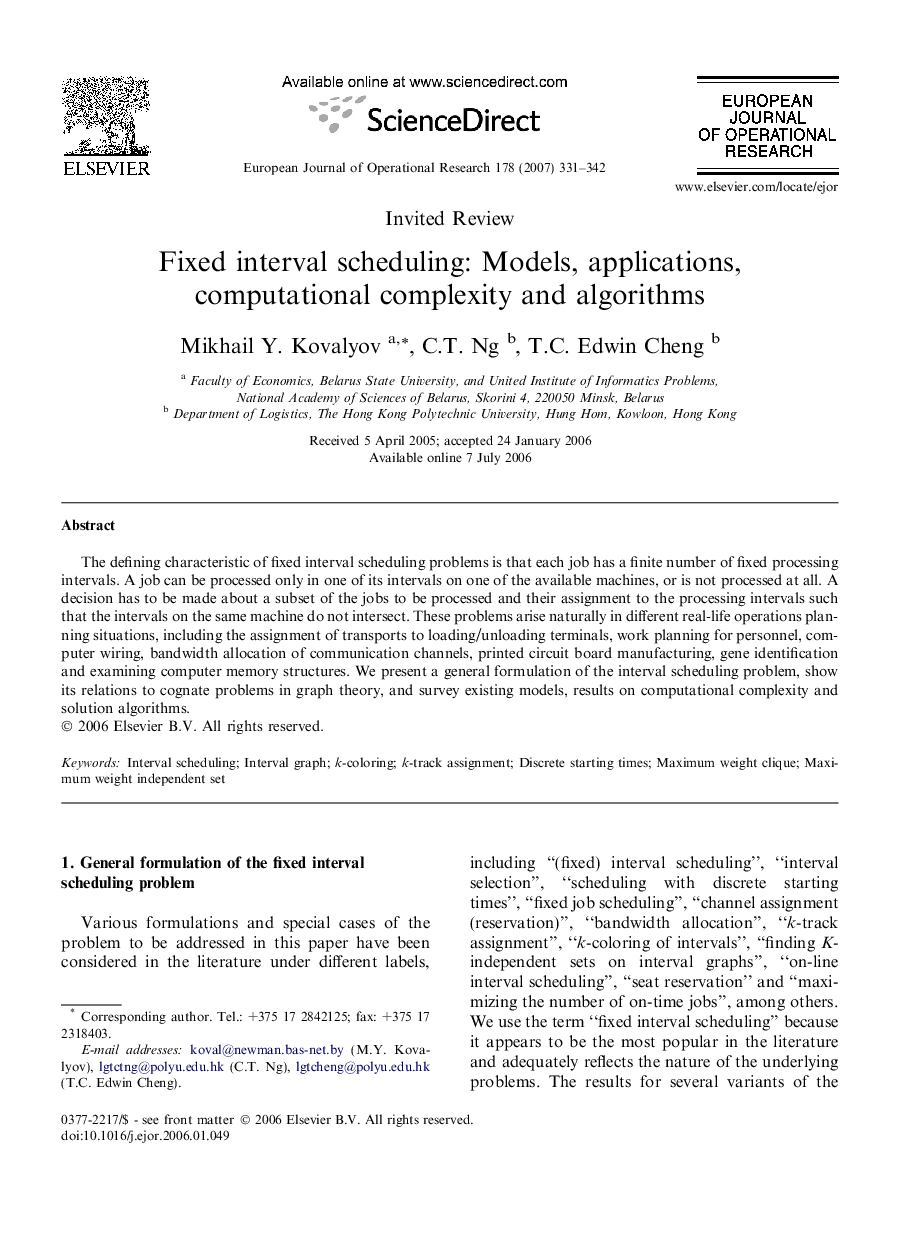| Article ID | Journal | Published Year | Pages | File Type |
|---|---|---|---|---|
| 479163 | European Journal of Operational Research | 2007 | 12 Pages |
The defining characteristic of fixed interval scheduling problems is that each job has a finite number of fixed processing intervals. A job can be processed only in one of its intervals on one of the available machines, or is not processed at all. A decision has to be made about a subset of the jobs to be processed and their assignment to the processing intervals such that the intervals on the same machine do not intersect. These problems arise naturally in different real-life operations planning situations, including the assignment of transports to loading/unloading terminals, work planning for personnel, computer wiring, bandwidth allocation of communication channels, printed circuit board manufacturing, gene identification and examining computer memory structures. We present a general formulation of the interval scheduling problem, show its relations to cognate problems in graph theory, and survey existing models, results on computational complexity and solution algorithms.
